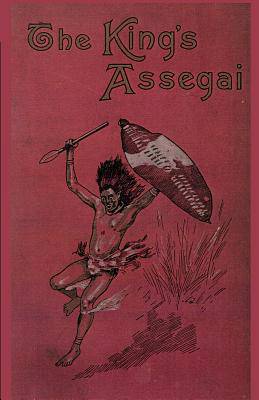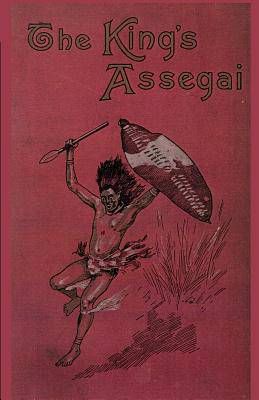
- Retrait gratuit dans votre magasin Club
- 7.000.000 titres dans notre catalogue
- Payer en toute sécurité
- Toujours un magasin près de chez vous
- Retrait gratuit dans votre magasin Club
- 7.000.0000 titres dans notre catalogue
- Payer en toute sécurité
- Toujours un magasin près de chez vous
Description
Set in the turbulent early 1800s before British colonisation in South Africa, The King's Assegai(1894) is a gripping narrative of a young Zulu warrior's passage through crisis. Together with an army of fellow Zulus, Untuswa flees the harsh rule of the Zulu king, Shaka, to establish a new nation under a new leader, Umzilikazi.
Untuswa quickly earns the King's favour and is appointed his chief messenger; emboldened by this honour, he asks the King's permission to marry. Laughing, the King promises to give Untuswa not only permission to marry, but also his assegai--his spear, which in his hand is symbol of his authority--but only if Untuswa performs a deed braver and bolder than any he has heard of. Untuswa, determined to claim performance of this promise, fights ferociously against enemy tribes, confronts the terrifying magic of the witch-doctors, and risks death at the hands of cannibals in the mountains. But these dangers are nothing compared to the fate that awaits him when he does the unthinkable--elope with the King's intended bride.
The first of Bertram Mitford's tetralogy of historical Zulu novels, The King's Assegai is remarkable for being a novel written by a white man, but peopled entirely by African characters. Based on Mitford's own experiences in South Africa and local oral tradition, *The King's Assegai* is not simply a great British novel about Africa, but, as Gerald Monsman argues in his introduction, a great African novel. Long out of print and neglected, The King's Assegai deserves a place alongside H. Rider Haggard's Nada the Lily as precursor to later established African classics such as Chinua Achebe's Things Fall Apart.
Spécifications
Parties prenantes
- Auteur(s) :
- Editeur:
Contenu
- Nombre de pages :
- 168
- Langue:
- Anglais
- Collection :
Caractéristiques
- EAN:
- 9781934555132
- Date de parution :
- 16-05-07
- Format:
- Livre broché
- Format numérique:
- Trade paperback (VS)
- Dimensions :
- 140 mm x 216 mm
- Poids :
- 199 g

Les avis
Nous publions uniquement les avis qui respectent les conditions requises. Consultez nos conditions pour les avis.






